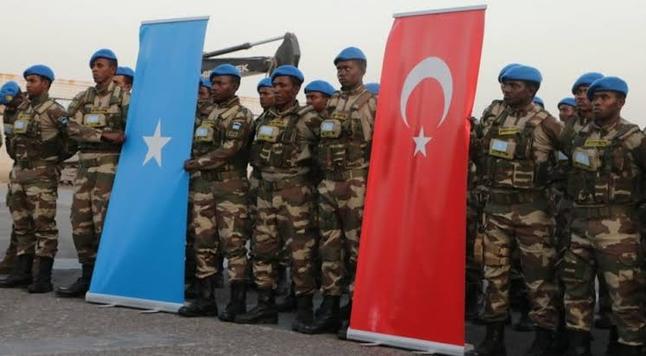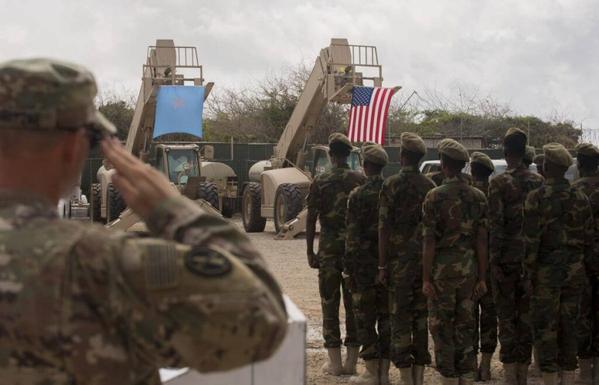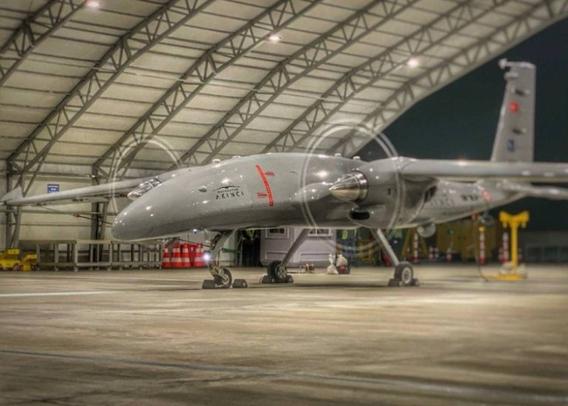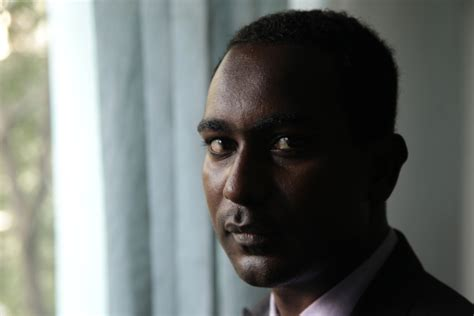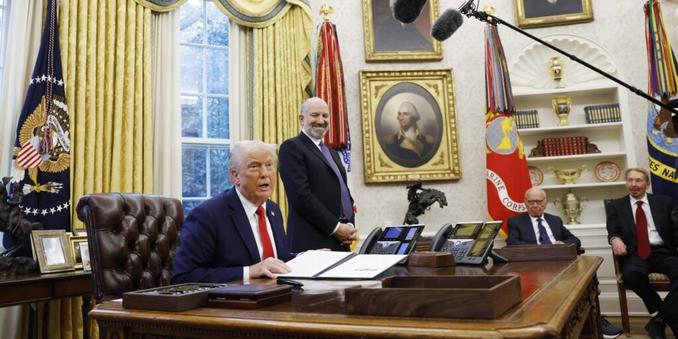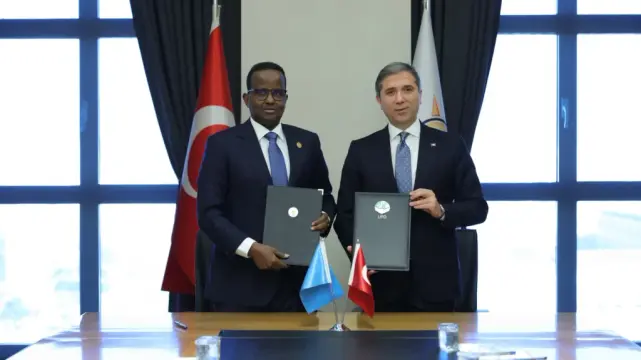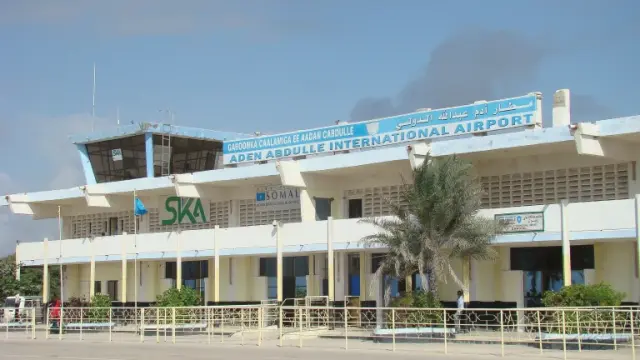شايف نفسك فن #مصر #تونس #الجزائر #المغرب #السودان #ليبيا #موريتانيا #جيبوتي #الصومال #جزر_القمر #لبنان #سوريا #فلسطين #الأردن #العراق #الكويت #البحرين #قطر #الإمارات #عمان #السعودية #اليمن #تونس #tntunisia #tntunisie #kmar #tnpolitic #clashfm #kmar #wawtn #me #تاريخ #waelhisgeo #edutok #fyp #fypシ゚ #سوريا #جغرافيا #حرب_عالمية #soccerlife
#%D8%A7%D9%84%D8%B5%D9%88%D9%85%D8%A7%D9%84
الصومال، وأوجه الصواب والخطأ في القياس على أفغانستان، وأبعاد الدور التركي
غالبًا ? ا يت? طرح وصول طالبان إلى السلطة في أفغانستان في عا? 2021 كنتيجة ? حت? لة في الصو? ال. ويبدو أن هذا التشبيه قد اكتسب ال? زيد ? ن الإلحاح في الآونة الأخيرة ? ع استعادة حركة الشباب بعض الأراضي التي ت? إجلاؤها ? نها ? نذ عا? 2022. وفي حين أن هذا التشبيه ? فيد في بعض […]تعارض في الرؤى في إدارة ترامب حول الاستراتيجية تجاه الصومال
دفعت ال? كاسب التي حققتها ? ؤخرًا حركة الت? رد الإسلا? ية في الصو? ال بعض ال? سؤولين في وزارة الخارجية الأ? يركية إلى اقتراح إغلاق السفارة الأ? يركية في ? قديشو وسحب ? عظ? ال? وظفين الأ? يركيين كإجراء احترازي أ? ني، وفقا ل? سؤولين ? طلعين على ال? داولات الداخلية. لكن […]الصومال تحصل على طائرات أكينجي المقاتلة بدون طيار تركية الصنع، وسط تصاعد لوتيرة الهجمات ضد القوات الصومالية
حصلت الصو? ال يو? الثلاثاء ال? اضي على طائرة ? قاتلة بدون طيار ? ن طراز "بيرقدار أكينجي" ? ن تركيا، في خطوة قد تعكس تطور ? حوري في ? جريات حربها ضد الت? رد الذي تشنه حركة الشباب ال? جاهدين الناشطة في البلاد. وتأتي هذه الخطوة في الوقت الذي تواجه فيه الحكو? ة الصو? الية تصاعدًا […]Somalia – a forgotten conflict
Terrible abuses take place in Somalia with little attention paid by the media
March 2025
The news is filled with the terrible events in Gaza and the resumption of bombing there, the war in Ukraine which, following President Trump’s activities and support for Russia, shows no sign of an equitable or fair resolution, and a possible resumption of hostilities in Lebanon means other conflicts receive little attention. This is true of Somalia on the horn of Africa where corruption and lawlessness are rife.
At South West conference in Exeter of Amnesty groups organised by the City’s Amnesty group, we heard first hand from a Somalian human rights defender Abdalle Mumin (pictured). Entitled Human Rights in Somalia: the Struggle of Defenders in a Dangerous Environment, he gave a detailed description of the severe problems being experienced in that country but which remain largely unreported. His descriptions of being held in an underground cell was chilling.
He explained the power set up in the country which provides valuable background to understanding the politics of repression. There are three centres of power: 1. Al-Shebaab a terrorist organisation with close links to Al-Qaeda 2. the government and 3. the clans of which there seem to be three. All are male dominated and the role of women in the political process is much reduced he said.
Corruption is rife and there is no independent judiciary. Women who are not wanted for some reason or complain too much can be murdered with impunity as there are no investigations carried out. Femicide is frequently practised. There is considerable sexual and gender based violence. The corruption starts with the business of getting into government for which a bribe of around $1m dollars is required. This has to be paid back of course which is done by purloining food aid and selling it off, accepting bribes for favours, money laundering and rewarding friends and family.
‘Terrorism and corruption are like brother and sister‘
This corrupt state of affairs can be kept going because attempts to publish stories is difficult. Many journalists are murdered: 85 in the period 1991 – 2024. There is also straightforward intimidation of news outlets by all the parties with many being closed. There are heavy restriction on human rights groups. This has now become the standard playbook for authoritarian and dictatorial regimes.
Foreign interventions he described as ‘confused’. Much aid in recent times is tied to resource extraction and there is an emphasis on security over human rights. Different agencies have different agendas making offering concerted help difficult.
There has been a huge displacement of population with around 2.9m affected. 80% of children do not receive an education and girls none at all in the rural areas because of the influence of Al-Shabaab.
Altogether a grim tale and finding hope is difficult. The problem in Somalia and in much of sub-Saharan Africa is the battle for resources. Countries desperate for minerals, oil and rare earth metals are concerned only to extract what they can and they show little regard for human rights. Their activities fuel the corruption since mining is impossible without the say so and bribes of one or all the various powers in the country. Abdalle Mumin himself was some kind of inspiration however. Despite the difficulties and the risks he faces – which include death from people unconstrained by law or justice – he was both inspiring and uplifting not to say humbling. Amnesty members present in Exeter were grateful for his talk.
#HumanRights_ #AbdalleMumin #Exeter #Somalia #القاعدة #الشباب #الصومال
ترامب “صانع السلام” يُصَّعِّد حرب أمريكا في الصومال
في الشهر ال? اضي، تولى دونالد ترا? ب ? نصب رئيس الولايات ال? تحدة الأ? ريكية، ? تفاخرًا بالتزا? ه بإنهاء الحروب. وأعلن في خطاب تنصيبه الأخير: "إن إرثي الأكثر فخرًا سيكون إرث صانع السلا? " . في الواقع، لسنوات، كان ترا? ب يتفاخر ب? ؤهلاته ال? ناهضة للحرب ويفخر بإنهاء "الحروب […]تركيا تعزز علاقاتها مع الصومال وإثيوبيا من خلال اتفاقيات سياسية
التقى نائب رئيس حزب العدالة والتن ية التركي ظافر سيراكايا، الأربعاء، ع عبد الرح ن ح د حسين الأ ين العا لحزب الاتحاد ن أجل السلا والتن ية الحاك في الصو ال، في أنقرة لتوقيع ذكرة تفاه ن أجل تعاون ثنائي أوثق بين الحزبين. وقال سؤولون أتراك ل وقع " يدل […]الإدارة التركية لمطار مقديشو الدولي: تاريخ من الاتهامات
الصومال تتهم إثيوبيا بعدم الاعتراف بها دولة ذات سيادة | أخبار
ما أهداف الاتفاق العسكري بين الصومال ومصر؟
الصومال: مقتل 32 إرهابيا في عملية عسكرية بمحافظة جوبا السفلى
لا يستطيع تأكيد مصرعه.. الجيش الأمريكي يستهدف الزعيم العالمي لتنظيم “داعش” في الصومال (صورة)
نجاة 6 مغاربة من الإعدام رميا بالرصاص في الصومال
مقديشو لن تقبل بقاعدة بحرية إثيوبية في “أرض الصومال”
الصومال يشهد تقدمًا جيدًا في القضاء على مرض السل
الصومال والمفوضية السامية للأمم المتحدة يبحثان أوضاع اللاجئين
الصومال يرحب بمخرجات اجتماع الجامعة العربية بشأن التسوية في ليبيا
20 مسلحا يسيطرون على سفينة بضائع قبالة الصومال
So, according to #ChatGPT, this is "an alphabetically ordered list of space-separated hashtags of all countries in the Global South. Each country name written in the most-spoken language of said country", but I'm not too sure it's right. For starters, I'm missing #Brasil and #Chile from the list.
Anyway, I've likely got tickets for #CCCamp23 (#Germany, August 15th to August 19th, 2023) at -%20 if you're from any of these:
#বাংলাদেশ #ભારત #ລາວ #البحرين #ভারত #ভারতমহাসাগর #မြန်မာ #بنگلاديش #កម្ពុជា #Colombia #جيبوتي #مصر #السلفادور #ኢትዮጵያ #فيجي #Gambia #Ghana #Guatemala #Guyana #Haiti #Indonesia #Iraq #الأردن #کشورهای_جنوبی #لبنان #Liberia #مدغشقر #Malawi #Malaysia #Maldives #مالي #المغرب #Moçambique #موريتانيا #Mauritius #مكسيكو #Myanmar #नेपाल #नीजर #نيجيريا #عمان #پاکستان #فلسطين #بيرو #Philippines #قطر #رواندا #Argentina #SaintLucia #SaintVincentAndTheGrenadines #Samoa #السعودية #Senegal #سيشيل #سيراليون #SolomonIslands #الصومال #جنوب_افريقيا #SouthSudan #سريلانكا #Cuba #السودان #Suriname #سوريا #Tanzania #ประเทศไทย #TimorLeste #Togo #Tonga #TrinidadAndTobago #تونس #تركيا #Uganda #الإمارات_العربية_المتحدة #Uruguay #Vanuatu #Venezuela #ViệtNam #اليمن #Zambia #Zimbabwe
Check the thread for more info.
#CCCamp2023 #acampar #privacidad #SoftwareLibre #SegInfo #CCCamp
